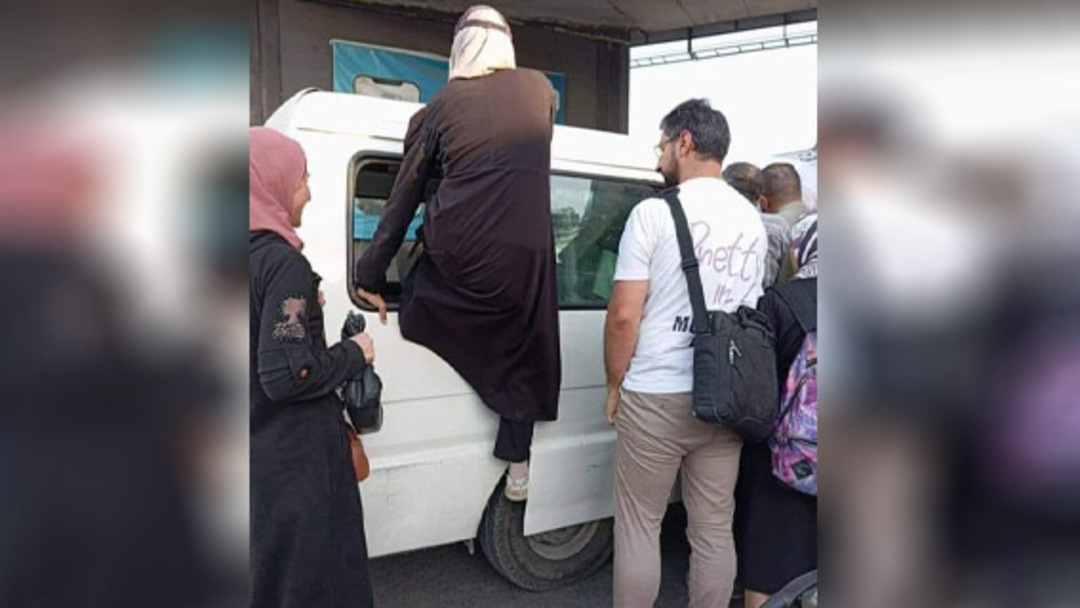-
Residents of Damascus and Its Countryside Turn to Alternative Transportation to Alleviate Commute Crisis

Some residents of Damascus and its countryside have resorted to alternative transportation methods in an attempt to ease the severe transportation crisis that has turned waiting for minibuses and collective transport into a daunting experience.
With the number of available minibuses declining, locals have started using motorcycles and collective transport vehicles like "Suzukis" to reduce wait times.
In this context, "Abu Wael," a resident of Sidi Muqdad, shared his experience, saying, "Since the beginning of the transportation crisis, we have noticed a significant drop in the number of minibuses, forcing us to wait for long periods at the Sayyida Zainab station. However, Suzukis have begun transporting passengers to areas like Beit Sahm and Sidi Muqdad, which has helped mitigate the crisis."
He added, "Despite the varying fares that range between 2,000 and 5,000 Syrian pounds, Suzukis have become an acceptable option because they save time and contribute to solving part of the problem," according to reports from the pro-Syrian government outlet, "Ather Press."
For his part, "Abu Fadi," a resident of the town of Muhaylaha, stated that Suzukis can carry more than 15 passengers, making them a practical choice to reduce waiting times. He noted that fares range between 5,000 and 8,000 pounds, but added that they effectively help alleviate congestion.
In the Al-Zablatani area, Suzukis have become a preferred option for many residents. A young man named "Majeed," from Ain Tarma, said, "After we used to wait for long periods for minibuses, now we wait for Suzukis, whose fares range between 3,000 and 5,000 pounds."
One Suzuki driver explained that transporting passengers is not his primary profession; he does this while returning from delivering goods and furniture, providing him with additional income to cover fuel costs. However, he mentioned the concerns drivers face due to traffic violations, as the law does not permit these vehicles to transport passengers collectively.
It is worth noting that Damascus has been experiencing a severe transportation crisis for weeks, attributed by drivers to a shortage of fuel allocations. Despite officials' statements about daily fuel provisions for minibuses, the crisis persists, prompting residents to seek unconventional alternatives to alleviate their suffering.
You May Also Like
Popular Posts
Caricature
BENEFIT Sponsors BuildHer...
- April 23, 2025
BENEFIT, the Kingdom’s innovator and leading company in Fintech and electronic financial transactions service, has sponsored the BuildHer CityHack 2025 Hackathon, a two-day event spearheaded by the College of Engineering and Technology at the Royal University for Women (RUW).
Aimed at secondary school students, the event brought together a distinguished group of academic professionals and technology experts to mentor and inspire young participants.
More than 100 high school students from across the Kingdom of Bahrain took part in the hackathon, which featured an intensive programme of training workshops and hands-on sessions. These activities were tailored to enhance participants’ critical thinking, collaborative problem-solving, and team-building capabilities, while also encouraging the development of practical and sustainable solutions to contemporary challenges using modern technological tools.
BENEFIT’s Chief Executive Mr. Abdulwahed AlJanahi, commented: “Our support for this educational hackathon reflects our long-term strategic vision to nurture the talents of emerging national youth and empower the next generation of accomplished female leaders in technology. By fostering creativity and innovation, we aim to contribute meaningfully to Bahrain’s comprehensive development goals and align with the aspirations outlined in the Kingdom’s Vision 2030—an ambition in which BENEFIT plays a central role.”
Professor Riyadh Yousif Hamzah, President of the Royal University for Women, commented: “This initiative reflects our commitment to advancing women in STEM fields. We're cultivating a generation of creative, solution-driven female leaders who will drive national development. Our partnership with BENEFIT exemplifies the powerful synergy between academia and private sector in supporting educational innovation.”
Hanan Abdulla Hasan, Senior Manager, PR & Communication at BENEFIT, said: “We are honoured to collaborate with RUW in supporting this remarkable technology-focused event. It highlights our commitment to social responsibility, and our ongoing efforts to enhance the digital and innovation capabilities of young Bahraini women and foster their ability to harness technological tools in the service of a smarter, more sustainable future.”
For his part, Dr. Humam ElAgha, Acting Dean of the College of Engineering and Technology at the University, said: “BuildHer CityHack 2025 embodies our hands-on approach to education. By tackling real-world problems through creative thinking and sustainable solutions, we're preparing women to thrive in the knowledge economy – a cornerstone of the University's vision.”
opinion
Report
ads
Newsletter
Subscribe to our mailing list to get the new updates!






















